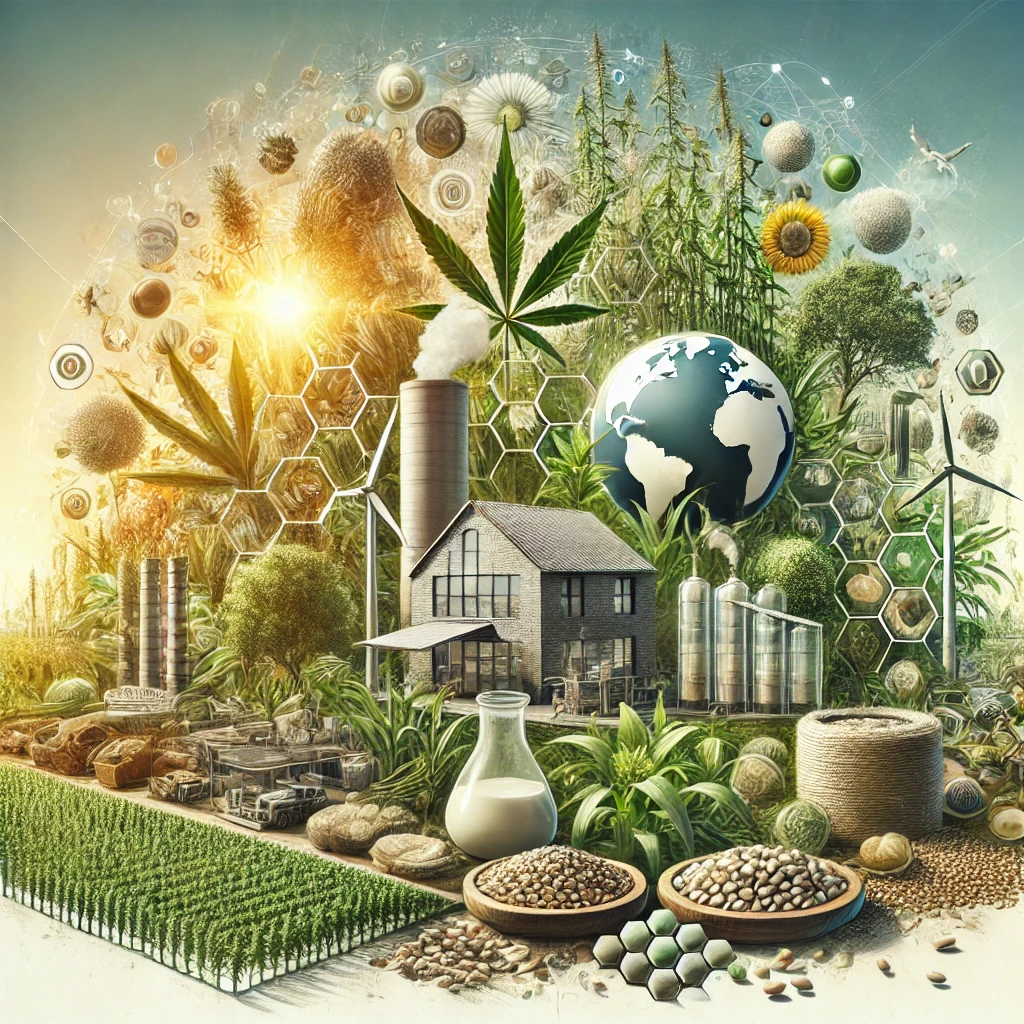Understanding Hemp: A Plant of Many Uses
Hemp, a versatile and resilient plant, has been cultivated for thousands of years, serving multiple purposes across different civilizations. Its historical significance is profound, as it has been utilized for its fibers, seeds, and oils, making contributions to various industries such as textiles, construction, food, and healthcare. The integration of hemp into human life underscores its adaptability and importance.
The hemp plant comprises several parts, each yielding unique applications. The stalks are rich in fibers, which are known for their strength and durability. Hemp fibers can be woven into textiles, producing eco-friendly clothing and accessories. In addition to textiles, the fibers from the stalks are employed in manufacturing paper products and insulation materials, showcasing their utility in sustainable construction solutions.
Moreover, hemp seeds are a nutritional powerhouse. They are an excellent source of essential fatty acids, protein, and dietary fiber, making them a valuable addition to health-conscious diets. The seeds can be consumed whole, cold-pressed to extract oil, or ground into protein powder, promoting their use in various food products. Furthermore, hemp oil is gaining recognition in the culinary world for its unique flavor and health benefits, contributing to the demand for hemp-based food products.
Another important aspect of hemp is its leaves, which can be utilized for medicinal purposes. Hemp leaves contain cannabinoids that have attracted attention for their potential therapeutic effects. CBD (cannabidiol) derived from hemp has been researched for its applications in pain relief, anxiety reduction, and overall wellness, thereby reinforcing the plant’s role in modern healthcare.
Overall, hemp’s diverse capabilities illustrate its significant relationship with human civilization. From ancient times to contemporary applications, hemp continues to serve as a sustainable solution to address various global challenges while promoting a greener future.
Hemp in Sustainable Building Materials
The construction industry is experiencing a paradigm shift towards sustainable practices, and hemp is emerging as a pivotal player in this transformation. Hemp-based materials, such as hempcrete, insulation, and fiberboard, are gaining recognition for their eco-friendly properties and versatility. Hempcrete, a mixture of hemp hurd and lime, serves not only as a lightweight building material but also offers remarkable thermal performance. This combination contributes significantly to energy efficiency, helping to regulate indoor temperatures and reduce reliance on heating and cooling systems.
One of the most notable advantages of using hemp in construction is its carbon-negative characteristics. As hemp grows rapidly, it absorbs substantial amounts of carbon dioxide from the atmosphere, offsetting emissions during its lifecycle. When used in building materials, hemp can effectively sequester carbon for extended periods, contributing to an overall reduction in the carbon footprint of buildings. This aspect aligns perfectly with global efforts to combat climate change by promoting sustainability in various sectors, including construction.
In addition to its environmental benefits, hemp is also known for its durability. Hemp-based materials have demonstrated resilience to pests and mold, which frequently compromise traditional building materials. This durability translates to longer lifespans and reduced maintenance costs, making hemp a cost-effective choice in the long run. Moreover, the use of hemp insulation can enhance the energy performance of structures, leading to lower energy consumption and utility bills.
By incorporating hemp into building practices, the construction industry can embrace innovative solutions that not only meet regulatory standards but also promote ecological balance. The introduction of hemp into mainstream construction practice symbolizes a commitment to sustainability, offering a viable alternative to conventional materials that contribute adversely to environmental degradation. Embracing hemp in sustainable building materials is not just a trend; it represents a step towards a more sustainable future.
Nutritional Benefits of Hemp: A Superfood for All
Hemp seeds, often referred to as a superfood, boast an impressive nutritional profile that makes them an excellent addition to any diet. Rich in essential fatty acids, particularly omega-3 and omega-6, these seeds promote heart health and reduce inflammation. The unique ratio of these fatty acids found in hemp seeds is beneficial in maintaining optimal cardiovascular function, making them a valuable component of a balanced diet.
In addition to healthy fats, hemp seeds are an outstanding source of plant-based protein. Comprising approximately 25% protein, they contain all nine essential amino acids, which are crucial for various bodily functions including muscle repair and immune support. This makes hemp an ideal option for those following vegetarian or vegan diets seeking high-quality protein sources. Furthermore, hemp seeds are rich in fiber, aiding digestive health and contributing to a feeling of fullness that can assist in weight management.
Hemp seeds are also laden with vitamins and minerals such as vitamin E, magnesium, phosphorous, potassium, zinc, and iron. These micronutrients support overall wellness by contributing to healthy skin, reducing oxidative stress, and maintaining energy levels. Incorporating hemp into daily meals can be simple and enjoyable; they can be sprinkled atop salads, blended into smoothies, or added to yogurt and oatmeal for extra texture and nutrition.
Moreover, hemp oil, derived from the seeds, can enhance salad dressings or be used in cooking to impart a nutty flavor while retaining its health benefits. With their versatility and rich nutritional content, integrating hemp into one’s diet can be a straightforward yet impactful way to support health and wellness. By exploring various culinary methods, individuals can easily embrace the remarkable advantages of this superfood and take a step towards a healthier lifestyle.
Hemp and Global Sustainability Efforts
The recent resurgence in hemp cultivation reflects its potential as a sustainable solution for pressing global challenges. Primarily, hemp’s rapid growth and high yield make it an effective crop for carbon sequestration, contributing to mitigating climate change. By absorbing substantial amounts of CO2 during its growth cycle, hemp not only aids in reducing greenhouse gas emissions but also enhances soil health through its extensive root system, which helps prevent soil erosion.
In addition to combating climate change, hemp plays a vital role in addressing deforestation—a critical issue today. Traditional timber industries often lead to the depletion of forests, but hemp offers an eco-friendly alternative. Hemp fiber can be used to manufacture a variety of products traditionally made from wood, including paper and construction materials. Utilizing hemp for these applications can significantly reduce the pressure on forests, helping maintain biodiversity and ecosystem stability.
Resource depletion is another significant challenge that hemp can help alleviate. Unlike many conventional crops, hemp requires minimal water and can thrive in less-than-ideal soil conditions, making it an excellent alternative for sustainable agricultural practices. By incorporating hemp into crop rotation systems, farmers can improve soil fertility and promote biodiversity, supporting sustainable farming and resilient food systems.
Various initiatives around the globe highlight hemp’s transformative potential in promoting environmental sustainability. Noteworthy case studies demonstrate successful hemp projects that emphasize its multifaceted applications—ranging from biodegradable plastics to eco-friendly textiles. These examples encourage industries and policymakers to embrace hemp as a functional resource in addressing the interconnected crises of climate change, deforestation, and resource depletion.
Ultimately, advocating for the cultivation and utilization of hemp is essential for a sustainable future. Stakeholders, including consumers, producers, and legislators, are urged to support policies that promote the adoption of hemp-based solutions. Through collective action, we can unleash the remarkable versatility of hemp to combat global challenges effectively.






